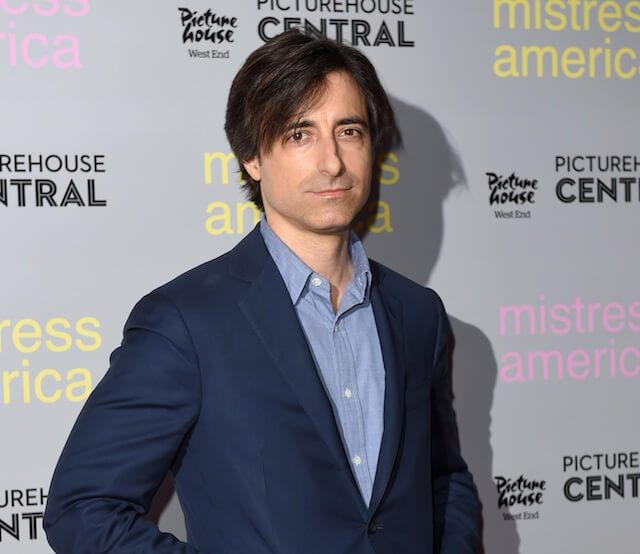Collaborating worked out on “Frances Ha,” so writer-director Noah Baumbach and writer-actor Greta Gerwig — also a couple in real life — decided to do it again. The result is “Mistress America,” a shape-shifting look at the friendship between Gerwig’s flighty New York gal and an impressionable freshman played by Lola Kirke (“Mozart in the Jungle”). They even made the second half a lengthy screwball comedy set piece — a sequence that was tricky for both the actors as well as Baumbach. At least it gave him the chance to again put a favorite, possibly now cool pop star on his soundtrack. Your last few movies have included Paul McCartney songs on the soundtrack. It seems like the cool kids have finally come around to his post-Beatles stuff.
I think it falls into that area where if you have as long a career as he’s had, you’re going to be everything at certain points. It’s true of a lot of guys from that era. People at a certain point decide to turn on them, and then everybody goes around and calls them a living legend. He’s always been cool to me. I got scolded recently for defending “Wonderful Christmastime.” I think hearing “McCartney II,” during which sessions it was recorded, really unlocks that song as something bizarre, not a cheesy holiday tune. Totally. I like that song. I love “McCartney II.” That whole record is great and odd.
RELATED: Our review of “Mistress America,” directed by Noah Baumbach and cowritten by star Greta Gerwig You use “No More Lonely Nights” in “Mistress America,” which is also a song that I don’t think everyone’s come around to yet.
I guess. I still have the 45 I bought at the time. Back then, the movie it’s in [“Give My Regards to Broad Street”] — which I never saw, actually — it wasn’t well received. It maybe got lumped in with that. But it’s got David Gilmour on guitar. The cool kids should love it. Both “While We’re Young” and “Mistress America” concern young people who run into trouble when it comes to using real people for their art. Did you view them as mirror images of each other? Those are similarities I’ve become more aware of doing interviews [laughs] than I was when I made them. I didn’t think of that, actually, but I understand the similarities. Both of them are about idolatry and what you put on a person, what you make them out to be, even if that isn’t necessarily what they are. It’s also interesting to see a film about a woman idolizing another woman. It’s usually the man idealizing the woman.
On “Frances” we had explored a friendship between women that had no reliance on a male. “Frances” is about figuring stuff out, but it had nothing to do with failing in love. That was something that at the time we were less aware of until we finished the script. Like, “Oh, that’s cool, it’s not about a guy helping her figure it out. It’s about figuring it out on your own, with other women.” In this we wanted to keep going that way and exploring a central female relationship. I think there is something about friendships between the same sex, particularly with a young girl, when you’re looking up to someone you think you want to be. Greta and I both identified with that in our own ways. How much do you think it helps having a female cowriter when it comes to writing female characters?
The thing about writing is you only have to understand up to a point what you’re representing. It’s the same thing as when people ask, “What happens after the movie ends?” Well, I have no idea. I really don’t. Whether it’s a woman writing a man or a man writing a woman, or if you’re writing someone from a different ethnicity or a different age, on some essential level it doesn’t mean you have to be that person. It can still be a mystery to you and you can still capture something that feels authentic. Our writing process doesn’t fall into “I’ll do the men, you do the women.” We each do everything. RELATED: Greta Gerwig talks “Mistress America” and how writing is like magic A large chunk of the second half is essentially a screwball comedy. That requires a different type of directing than you’ve done in the past, or, in fact, in the first half of the film.
To the degree that I thought, “Oh, I’m directing a screwball comedy” — well, I don’t think I even thought of it that way. In some ways it was about finding out a way to stay back the way they do in those movies, and do as much as you can with real blocking and real movement and real dialogue and real rhythm, and not try to cut it up so much. You really see their physicality; you see their bodies. That’s part of the humor. You think of the actors and their physicality as well as the verbal aspects of it. But it took awhile. It takes awhile to get those rhythms down and get everyone in the right place and walking out at the right time. You just have to keep rehearsing till you get it. It seems to require the director become a choreographer as well.
It really does. And it’s frustrating when it doesn’t work.
Noah Baumbach on ‘Mistress America,’ writing women and Paul McCartney

Getty Images
Follow Matt Prigge on Twitter @mattprigge






















